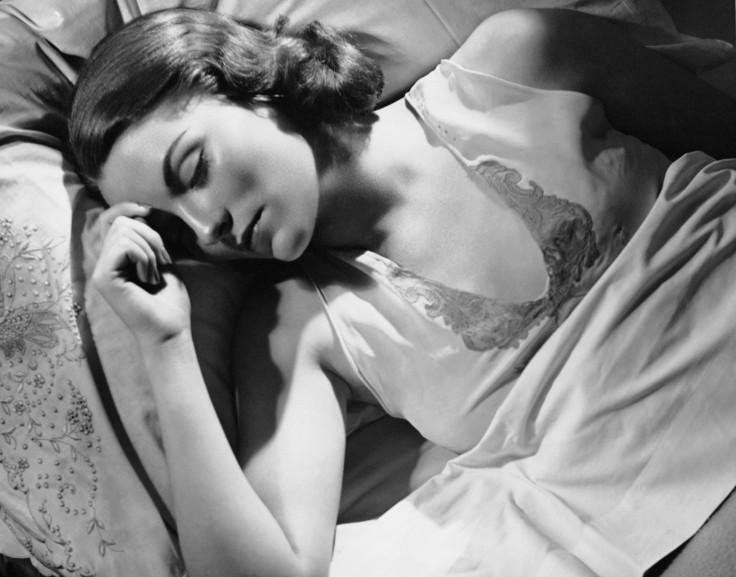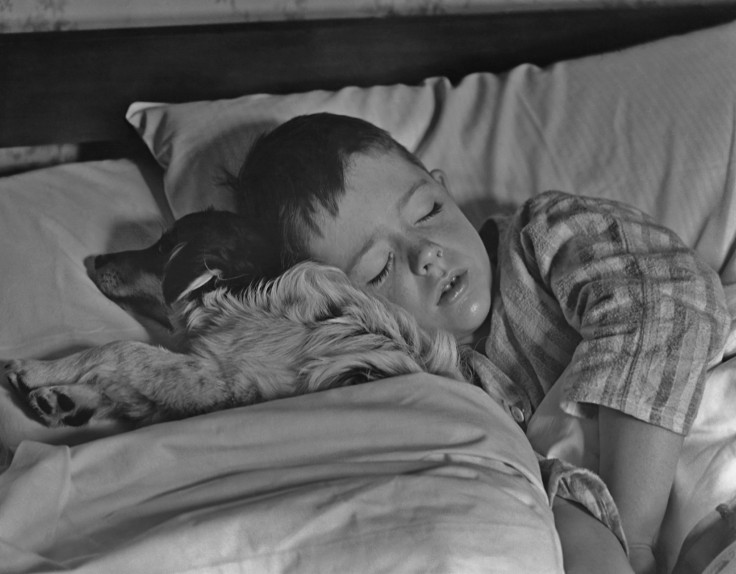If You Are Sleep Deprived, Your Social Life Will Suffer Along With Your Health, Study Says

Do you feel sleeping less is a good thing? Well, then you just might be wrong.
A new study published Wednesday in the Royal Society Open Science Journal found not getting enough sleep makes a person less healthy, less attractive and damages ones’ social appearance.
The study suggested “one might also avoid contact with sleep-deprived, or sleepy-looking, individuals, as a strategy to reduce health risk and poor interactions.”
However, the study also discovered less sleep and looking tired have a direct relationship to attractiveness and health and people tend to interact less with someone who looks unhealthy and worn out.

The study was conducted at the Karolinska Institute in Sweden, where the researchers photographed 25 male and female students at major universities in the Stockholm area, between the age group of 18 to 47 years, without makeup after they had slept for two days for eight hours and another group who had restricted sleep for four hours on two consecutive nights.
The researchers then presented each student’s photograph to a group of 122 strangers- 65 females and other males between the age group of 18-65 years. The strangers had to rate the photographs on the basis of attractiveness, health, sleepiness and trustworthiness and how much they would like to socialize with the participants.
Read: World Sleep Day 2017: Interesting Facts You Should Know About Sleep
The subsequent results showed raters gave lower scores and were less inclined to socialize with individuals in the sleep-deprived images. Also, it was found the ones who had got insufficient sleep were perceived as less attractive and less healthy.
However, there was no difference in what the raters perceived on the basis of trustworthiness. The findings of the study suggested that “naturalistic sleep loss can be detected in a face and that people are less inclined to interact with a sleep-deprived individual.”
According to the study, "Having an unhealthy-looking face, whether due to sleep deprivation or otherwise, might thus activate disease-avoidance mechanisms in others and render one's surroundings less socially inclined.”
Subjects were not told why they were being photographed or the purpose of the study before hand as the researchers thought that would have an effect on them and they might not turn up in the exact same condition that they were in after being sleep-deprived or getting adequate sleep.
Read: Sleep Technology: The Nightingale Device Blankets Your Room In Ambient Sound Waves
The National Sleep Foundation had found in December 2014 that 45 percent of Americans said sleep deprivation or less sleep had an impact on the performance of their daily activities at least once in their past seven days, according to the National Sleep Foundation’s inaugural Sleep Health Index.
The Sleep Health Index was formulated to track Americans’ sleep behaviors and trends.
The Sleep Health Index also showed that the overall health of a person was highly related to the quality of sleep. According to the index “Low life satisfaction and high stress were also related to sleep quality. Groups that reported poorer sleep quality were those with an annual income of less than $20,000, those with education levels of high school or less, and Americans between 30 and 64 years old compared to younger American adults ages 18-29.”
“The findings from the Sleep Health Index demonstrate a need for sleep health improvement,” David Cloud, CEO of the National Sleep Foundation had said. “Sleep is an important factor in overall health. We suggest that Americans and their doctors talk about sleep as a vital sign of health and well-being,” Cloud added.
© Copyright IBTimes 2024. All rights reserved.












